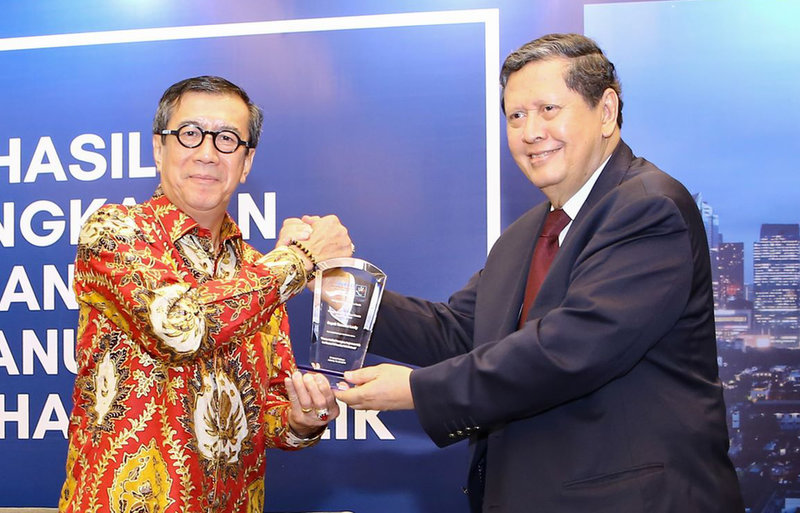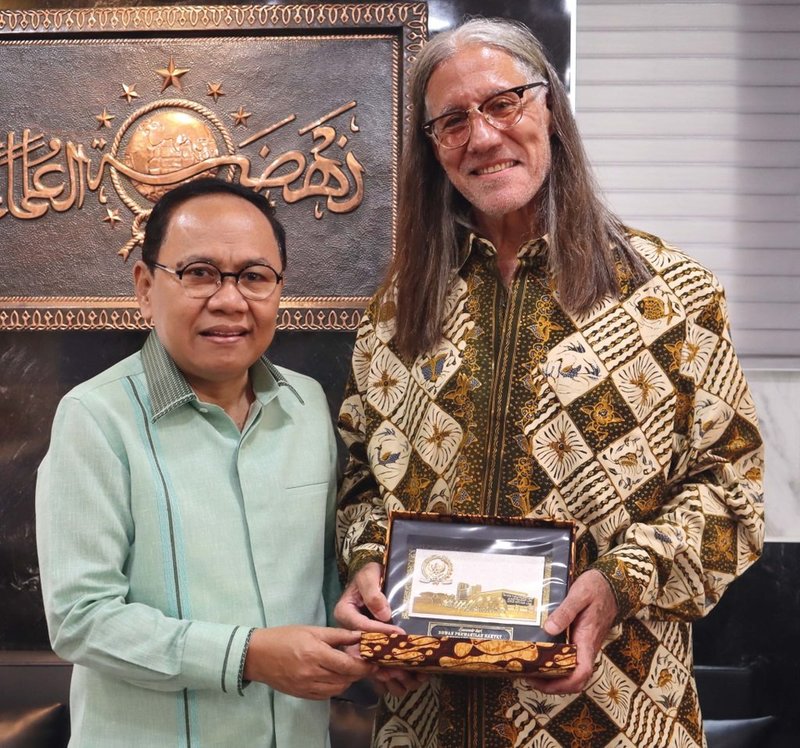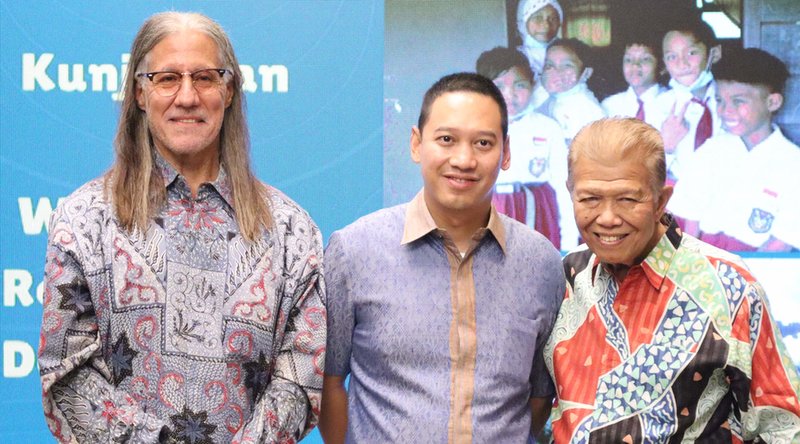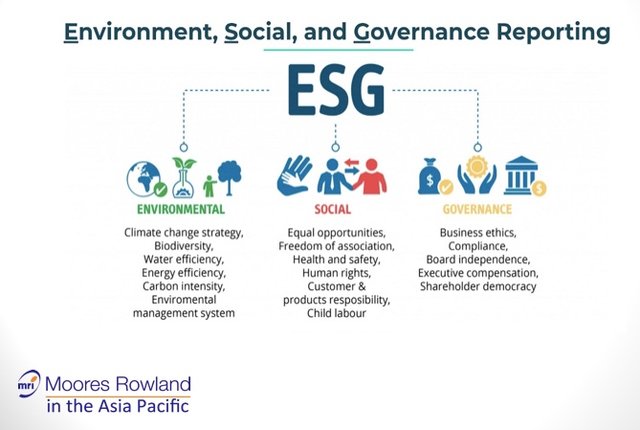Feature
Moores Rowland and Human Rights Auditing
A winner of IAB’s Audit Innovation of the Year award 2012 for its Human Rights Audit work, Praxity member firm Moores RowlandIndonesia is a leading human rights auditor in Indonesia. Zoya Malik, Editor-in- Chief, IAB, GlobalData interviewed James Kallman, CEO of MRI, to understand the background to their corporate efforts in promoting the ‘S’ in ESG and to explain how Human Rights auditing is raising governance standards within the supply chain.

The landscape of finance organisations is being redefined by the rapid advancement of artificial intelligence (AI) and machine learning technologies. This unprecedented shift is transforming the traditional roles and responsibilities of accountants, auditors, and financial analysts, demanding a strategic approach to talent acquisition and development.
To thrive in this era of AI, finance organisations must adapt by seeking out new skills that complement and elevate human expertise. What skills should finance organisations prioritise, so they can successfully navigate the complex, constantly-evolving world of AI?

Bernard Marr
World-renowned futurist, influencer, author and thought leader in the fields of business and technology.
Zoya Malik: Why does MRI place an emphasis on the social component of ESG?
James Kallman: MRI sees the ‘S’ in ESG as the foundation of the whole concept as it includes human rights, gender, equity and inclusion, workplace health and safety, labour rights and continued employee development, and even the interrelationship between them. There is a lack of social component auditing because it is so complex, so we fill the need.
Zoya Malik: Tell us about FIHRRST, MRI’s human rights division?
James Kallman: The Foundation for Human Rights Reporting Standards (FIHRRST) was established by a group of internationally respected human rights advocates to create and promote standards by which adherence to human rights principles can be demonstrated. FIHRRST allows us to present our consortium in a unique way, and to demonstrate all of MRI’s capabilities in the most credible way.
After receiving IAB’s Audit Innovation of the Year award, FIHRRST then developed the now internationally accepted Business and Human Rights International Standard for Certification (BHRISC 2011).
Today, FIHRRST is one of the few NGOs in Indonesia focusing on gender equality, sustainability and human rights due diligence (HRDD) training, which is a process to identify, prevent, mitigate and account for how companies address their impacts on human rights.

Marzuki Darusman, chairperson and co-founder of FIHRRST, former chairman of the Indonesia Human Rights Commission, and former attorney general (right), with the Indonesia minister of law and human rights, Yasonna Laoly, during the launch of FIHRRST’s study and ranking of respect for human rights by companies listed on the Indonesia Stock Exchange
Zoya Malik: How has human rights auditing developed as a business service line for Moores Rowland and FIHRRST in Indonesia?
James Kallman: We established FIHRRST for more human rights expertise following the issuance of the UN Guiding Principles for Business and Human Rights (UNGPs), and to meet the need to make human rights auditable in a business or corporate context. Through BHRISC, we envisioned a standard that would allow companies to measure their ability to identify and assess the actual and potential adverse human rights impacts of their own operations, or those resulting from its business relationships. We see that by adhering to BHRISC, companies are demonstrating to their stakeholders their respect for human rights through their human rights policy, due diligence processes and grievance mechanisms.
Zoya Malik: Which sectors and clients are MRI and FIHRRST involved with in delivering human rights audits and advisory?
James Kallman: Most of them are from extractive industries. Mining, pulp and paper, oil and gas. For example, we conducted an audit for Asia Pulp and Paper, an Indonesian conglomerate, that included an HRDD and stakeholder engagement on site. We also conduct assurance for sustainability reports, which include the safety and well-being of workers, in accordance with ISAE 3000. With MRI’s established links in Indonesia and within Praxity, our audits offer a wealth of advantages for our clients, particularly those with a global presence.
Another important part of MRI and FIHRRST’s business involves the Indonesia Stock Exchange (IDX) and Financial Services Authority (OJK). Listed companies on the Indonesia Stock Exchange (IDX) are now paying more attention to the government’s requirements that they meet certain ESG criteria. That is an opportunity for us. Following their regulations on sustainable financial services for publicly listed companies, the OJK is finally getting serious about fintech companies and the like needing to file proper ESG reports. Another opportunity for us.”
Every year, we produce a Study of the Sustainability Reports of All the Publicly Listed Companies in Indonesia, which is a platform for continuously supporting the advancement of sustainability reporting by public companies in Indonesia. Our ESG ranking is well established here and our way of looking at ESG (with human rights as the foundation), is why UNDP Indonesia is supporting our work.

Moores Rowland Indonesia CEO and co-founder of FIHRRST, James Kallman (right), receives a plaque of appreciation from Taufiq R. Abdullah, member of the House of Representatives of Indonesia, at a forum on green industries hosted by the Partai Kebangkitan Bangsa (PKB) national political party in Jakarta
Zoya Malik: Where might adverse human rights impacts occur through a supply chain in Indonesia and around the world?
James Kallman: Adverse human rights impacts can occur at any point in a company’s supply chain, which often involve large numbers of suppliers or subcontractors, including some who are part of the informal sector. These adverse impacts often occur due to absent or inadequate monitoring systems within the parent company, and against the most vulnerable, such as women workers, migrant workers, and child labourers. Hence the need for FIHRRST’s HRDD training.
Zoya Malik: What standards/codes of conduct are being applied in the audit of supply-chain human rights management? How do these align with the UN’s Guiding Principles? Are these relevant with Indonesia’s local experience?
James Kallman: We are using our own standard (BHRISC) which was developed in accordance with the UNGPs. The UNGPs refer to the International Bill of Human Rights (UDHR, ICCPR, ICESCR). As Indonesia has ratified all those bills, BHRISC is very relevant with Indonesia’s local experience.
Zoya Malik: Where is this trend in demand for human rights auditing coming from, and how well is MRI placed to advise local and international clients to meet reporting and compliance criteria in Indonesia?
James Kallman: Human rights auditing has picked up steam over the last few years due to consumers wanting to know that the products they purchase and use are sustainable, and not a result of rampant human rights violations, and also from the need for investors to better know the companies they are investing in.

Adika Nuraga Bakrie, President Director of PT. Bumi Resources (center) with Marzuki Usman, former chairman of the Indonesia Securities and Exchange Commission and a co-Founder of FIHRRST (right), and James Kallman, CEO of Moores Rowland Indonesia and a co-founder of FIHRRST, at the public launch of the Human Rights Due Diligence Report
Zoya Malik: How important has it been for Indonesia to set up benchmarking standards for human rights policies to fight risk of human/modern slavery in Indonesian and ASEAN supply chains?
James Kallman: Very important. To that end, the Government of Indonesia has officially endorsed new regulations pertaining to the National Strategy for Business and Human Rights (Stranas BHAM) through Presidential Regulation (Perpres) Number 60 of 2023. We see that as another opportunity to promote better regulations and standards for human rights policies, especially in combating modern slavery.
Zoya Malik: Why are human rights audits seen as necessary by business regulators and investors, and for exporters / traders of goods overseas?
James Kallman: Human rights audits of companies can contribute to a human rights risk assessment and the development of corrective action plans. They can be tools to understanding how to avoid possible human rights violations, and to ensure human rights protections such as no forced labour, fair pay, gender equality, adequate rest, respect for freedom of association and so forth, are included in company contracts. Human rights audits also promote adequate monitoring systems, grievance mechanisms and appropriate remedial measures.
Zoya Malik: What is the definition of a Human Rights City as Bandung (West Java) has been designated? How will this bring focus to adhering to good practices by business partners?
James Kallman: There is no single definition for a Human Rights City. However, characteristically, when different stakeholders in a city – the local government, civil society, and private sector – come together to demonstrate a commitment to adopting human rights principles and laws, a Human Rights City is born. The key thing about a human rights city is that it places the individual in the centre, adheres to human rights principles, and all relationships or engagements are made with human rights in mind.
We have noticed, however, that the development of a Human Rights City needs to more involve the business sector, as without it, governments are making decisions about human rights standards without input from what should be a crucial partner behind good practices. Businesses have a significant impact on the way people live and enjoy human rights.

The cover of the Moores Rowland/FIHRRST Study on the Sustainability Reports of Indonesia’s Public Companies 2021.
Zoya Malik: What more is there beyond human rights and sustainability compliance auditing that can promote sustainable improvements in supply chains?
James Kallman: Education is a start. Compliance is not successful in the long term if it is done out of ignorance, pressure or duress. Those of us operating in the standards community often develop standards for an industry or a particular population. However, we often do not sufficiently explain the need for the standard or how to implement it effectively. In some cases, we leave the standard open to interpretation concerning implementation.
However, with BHRISC, we do not offer the standard without training. We explain basic human rights principles before discussing them in a business context. We discuss the importance of embedding human rights throughout the organisation’s operations. We provide concrete examples tailored to the audience seeking to use the tool. Our goal is to reduce or eliminate the subjectivity in the assessment process.
“Monitoring is also key, it should be part of the compliance process. Companies often state that they comply with various laws or standards. However, looking deeper, we see that companies sometimes carry out activities to obtain a required permit, but they do not have mechanisms to ensure they remain compliant. In other words, the policies on paper are either not implemented or not carried out consistently or long term. That’s where MRI and FIHRRST come in.”
For further information visit: moores-rowland.com and fihrrst.org.